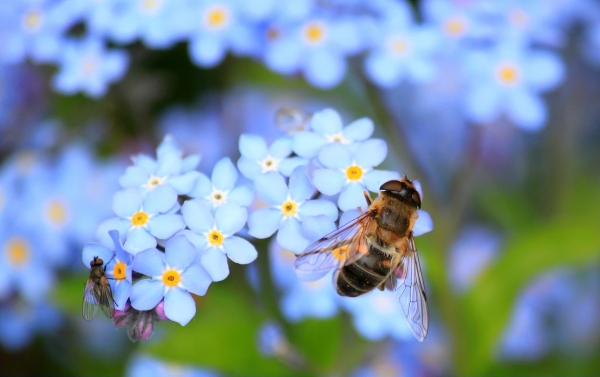Warm, wet weather conditions and changing climate negatively influence the nectar intake and nutritional health of honey bees, but maintaining large tracts of grassy natural habitat with flowering plants around apiaries may help to mitigate the detrimental effects of climate, according to a new study by an international team of researchers.
The pollination provided by bees and other insects is critical for crop production and ecosystem health, but some wild and managed pollinator populations have declined significantly around the world, the researchers noted. A major driver of these declines is loss of habitat and flowering plants — the food sources for pollinators — likely due to climate change and shifts in land use.
“However, the effects of land cover can be specific to a particular location,” said lead author Gabriela Quinlan, postdoctoral scholar in entomology in Penn State’s College of Agricultural Sciences.
“Previous research looking at the influence of land cover, weather and climate on bee health found a greater impact from weather and climate,” she said. “But no studies have monitored colonies over sufficient time and space to determine how climate and weather interact with landscape quality to affect honey bees’ ability to gather nectar in North America.”
Read more at: Penn State University
Photo Credit: cocoparisienne via Pixabay


